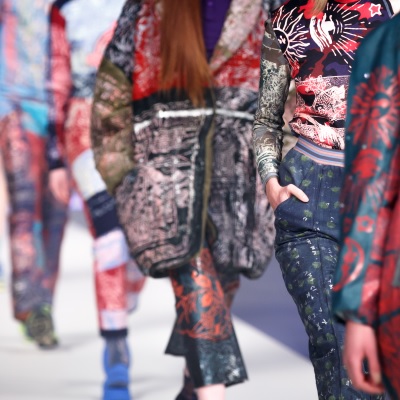Circularity in fashion is an increasingly crucial issue
Deda Stealth participated in the Monitor for Circular Fashion for the third year, which recently published its 2023 report.
The path to more circular and sustainable fashion affects us all, from big brands to supply chain actors to consumers. It is with this awareness that, three years ago, Deda Stealth joined the Monitor for Circular Fashion, a multi-stakeholder project involving realities from across the fashion value chain with the scientific contribution of the SDA Bocconi Sustainability Lab and the cross-industry vision of Enel X. This choice is part of our Group's broader commitment to collaborate with the different ecosystems we are part of - territorial, entrepreneurial, innovation - to have a positive impact on the people and the environment.
Fashion circularity is an increasingly hot topic today. Proposals for legislation at the European level, starting with the Digital Product Passport and the Waste Framework Directive, aim to make the fashion supply chain more traceable and transparent and to give producers greater responsibility for managing textile waste. That is why initiatives like the Monitor for Circular Fashion are crucial: they aim to identify actions and best practices that encourage reuse and recycling throughout the supply chain.

In 2023, the Observatory involved eight new realities (there are 26 in total) and presented three pilot projects in addition to the seven already launched in 2022. They aim to test the more than 40 circularity KPIs identified by the SDA Bocconi research team and promote sustainable and circular methodologies in the textile, apparel, leather, and footwear sectors.
Last week, at its annual multi-stakeholder event, the Monitor presented its 2023 report on optimizing the fashion industry for circularity. It found that the main benefit of circularity is improved brand reputation, followed by new business opportunities and increased consumer loyalty. In contrast, the barriers to circularity companies identify relate to cost, technology availability, and infrastructure availability. Among the most relevant trade-offs of circularity emerge increased operational complexity, volume availability, high costs, and critical quality issues.
During the event, Monitor for Circular Fashion partner companies signed the Circular Fashion Manifesto for the third year, which declares a commitment to greater transparency and supply chain traceability and incorporates eight actions identified by the European Commission's Textile Transition Pathway, a strategy for accelerating green practices in the textile sector.



